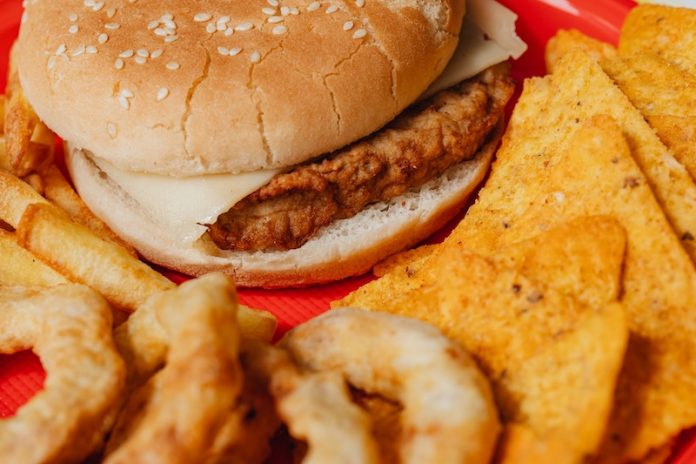
Have you ever noticed that when you remember a big meal you had recently, you don’t feel as hungry?
This is called the “meal-recall effect”.
It means that thinking back on a recent meal can make you eat less later on. It’s a neat trick your brain plays!
Scientists from the University of Cambridge decided to see what would happen if people imagined their recent meals were even bigger than they were.
They also wanted to see if remembering a meal in detail—like how it felt to chew and swallow—would make a difference. The results of their experiments were published in a journal called “Appetite”.
How They Conducted the Experiment
The scientists had 151 volunteers for this experiment. They found out something really interesting: If the volunteers imagined their meal as bigger and more satisfying than it really was, they ate less later on.
How much less? About 24 grams less, which is roughly equal to two biscuits or 122 fewer calories.
However, trying to remember the meal in detail didn’t have the same effect.
So, it seems imagining a bigger meal is the key. Dr. Joanna Szypula, the lead scientist of this experiment, said, “Your mind can be more powerful than your stomach in dictating how much you eat.”
What the Volunteers Did in the Experiment
In the experiment, volunteers were given a meal of rice and sauce to eat. After that, they weren’t supposed to eat anything for three hours.
Then, they returned to the lab to perform imagination tasks and a “taste test” of biscuits.
The volunteers were divided into five groups. Three groups were asked to remember their recent lunch.
They were then told to imagine moving their meal around on a plate, remember their lunch in detail, or imagine their meal as being twice as big and filling as it really was.
The fourth group had to describe a photo of spaghetti hoops and then imagine moving it around on a plate.
The fifth group did the same tasks, but with stationery items like paperclips and rubber bands instead of food.
After all of this, the volunteers had a taste test of biscuits. They were told to eat as many biscuits as they wanted, and the scientists secretly kept track of how many biscuits each person ate.
Who Ate the Most Biscuits?
The group that imagined spaghetti hoops ate the most biscuits, and the group that imagined stationery ate the second most.
The third and fourth most biscuits were eaten by the groups that imagined moving their lunch around and remembered their lunch in detail, respectively.
The group that ate the fewest biscuits? The people who imagined their meal as twice as big!
In the end, everyone was asked to recreate their original lunch portion using rice and sauce. The group that imagined their meal as twice as big actually underestimated their portion size.
It seems like they knew their meal wasn’t really as big as they imagined, but the trick still made them eat less biscuits.
What’s Next for This Research?
Dr. Szypula says more research is needed to figure out exactly how and why the meal-recall effect works. But she’s hopeful that these findings could help us control our eating in a new and effective way.
So, the next time you feel hungry, why not try imagining that your last meal was twice as big? It might just make you eat less!
If you care about health, please read studies about how eating eggs can help reduce heart disease risk, and Vitamin K2 could help reduce heart disease risk.
For more information about health, please see recent studies about how to remove plaques that cause heart attacks, and results showing a new way to prevent heart attacks and strokes.
The study was published in Appetite.
Copyright © 2023 Knowridge Science Report. All rights reserved.



